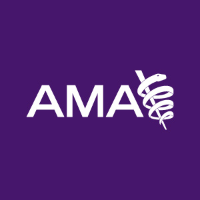 The American Medical Association (AMA) (@AmerMedicalAssn) published an update to the Current Procedural Terminology (CPT®) code set that includes new code additions and editorial revisions for reporting medical services sparked by the public health response to the COVID-19 pandemic.
The American Medical Association (AMA) (@AmerMedicalAssn) published an update to the Current Procedural Terminology (CPT®) code set that includes new code additions and editorial revisions for reporting medical services sparked by the public health response to the COVID-19 pandemic.
The update to the CPT code set was approved by the CPT Editorial Panel, the independent body convened by the AMA with authority to review and approve proposed additions and revisions to the CPT code set. The new additions and revisions to the CPT code set have been approved for immediate use.
“Two of the newly approved codes report nucleic acid assays that allow a single test to simultaneously detect the novel coronavirus and a combination of common viral infectious agents, including influenza A/B and respiratory syncytial virus,” said AMA President Susan R. Bailey, M.D. “Concurrent detection promises to conserve important testing resources, allowing for ongoing surveillance of influenza while testing for the novel coronavirus.”
For quick reference, the new category I CPT codes and long descriptors are:
- 87636 – Infectious agent detection by nucleic acid (DNA or RNA); severe acute respiratory syndrome coronavirus 2 (SARS-CoV-2) (Coronavirus disease [COVID-19]) and influenza virus types A and B, multiplex amplified probe technique
- 87637 – Infectious agent detection by nucleic acid (DNA or RNA); severe acute respiratory syndrome coronavirus 2 (SARS-CoV-2) (Coronavirus disease [COVID-19]), influenza virus types A and B, and respiratory syncytial virus, multiplex amplified probe technique
The CPT Editorial Panel also revised CPT codes ranging from 87301 to 87430 by removing the undefined term “multi step method” from code descriptors. The revision clarifies the proper reporting for antigen tests that are read by a machine, as compared to those which can be visually interpreted without a machine. This revision affects the newly developed descriptor for CPT code 87426.
- 87426 – Infectious agent antigen detection by immunoassay technique, (eg, enzyme immunoassay [EIA], enzyme-linked immunosorbent assay [ELISA], fluorescence immunoassay [FIA], immunochemiluminometric assay [IMCA]) qualitative or semiquantitative; severe acute respiratory syndrome coronavirus (eg, SARS-CoV, SARS-CoV-2 [COVID-19])
In accordance with the above revision, the CPT Editorial Panel approved a new category I code, 87811, to report infectious agent antigen detection by immunoassay with direct visual observation.
- 87811 – Infectious agent antigen detection by immunoassay with direct optical (ie, visual) observation; severe acute respiratory syndrome coronavirus 2 (SARS-CoV-2) (Coronavirus disease [COVID-19])
In addition to the long descriptors, short and medium descriptors for CPT codes 87636, 87637, 87426 and 87811 can be accessed on the AMA website, along with several other recent modifications to the CPT code set that have helped streamline the public health response to the SAR-CoV-2 virus and the COVID-19 disease.
Changes to the CPT code set are considered through an open editorial process managed by the CPT Editorial Panel that collects broad input from the health care community and beyond to ensure CPT content reflects the coding demands of digital health, precision medicine, augmented intelligence, and other aspects of a modern health care system. This rigorous editorial process keeps the CPT code set current with contemporary medical science and technology, so it can fulfill its vital role as the trusted language of medicine today and the code to its future.
Answers to questions on CPT coding and content are available from the CPT Network.
About the American Medical Association
The American Medical Association is the physicians’ powerful ally in patient care. As the only medical association that convenes 190+ state and specialty medical societies and other critical stakeholders, the AMA represents physicians with a unified voice to all key players in health care. The AMA leverages its strength by removing the obstacles that interfere with patient care, leading the charge to prevent chronic disease and confront public health crises and, driving the future of medicine to tackle the biggest challenges in health care.
